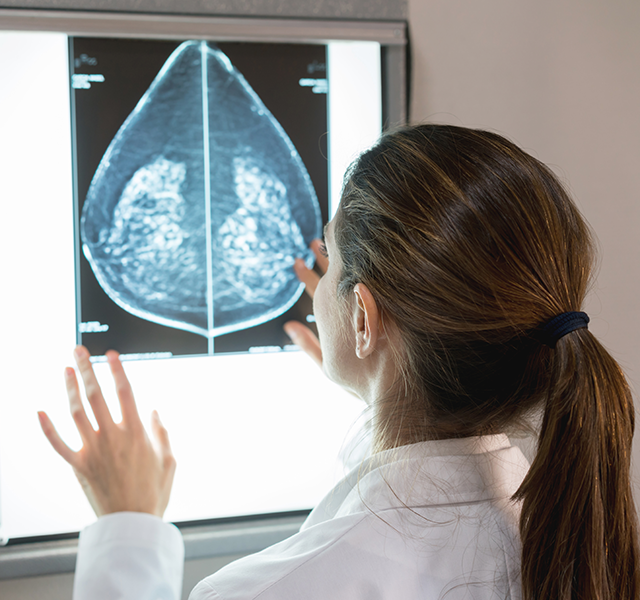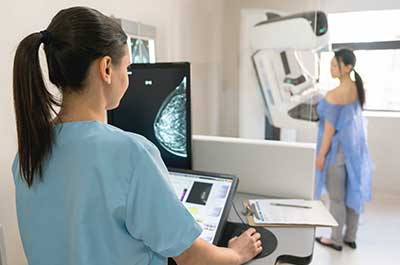You might know that several factors can raise your breast cancer risk. Some of these factors include having a family history of breast cancer, being of Ashkenazi Jewish descent, having chest radiation for Hodgkin’s lymphoma before age 40, having obesity, taking hormone replacement therapy for more than five years or having dense breasts. But many women might not know whether they have dense breasts—or what that means.
“Those with dense breasts have less fatty tissue and more glandular tissue, which is tissue that produces breast milk,” says Laura Dalla Vecchia, M.D., a breast cancer surgeon at Henry Ford Health. “There’s a perception that women with small breasts are more likely to have dense breasts, but that’s not necessarily true. Younger women tend to have dense breasts and develop more fatty tissue as they get older, but a mammogram is really the only way to tell the density of a breast.”
And in fact, 40 to 50% of women in the United States ages 40 – 74 have dense breasts.
Why Does Dense Breast Tissue Raise Your Breast Cancer Risk?
Breast cancer develops in glandular tissue—not fatty tissue—so the more glandular tissue you have, the more at-risk tissue you have. Women with dense breasts are four to five times more likely to get breast cancer than women with fatty breasts.

Dense breast tissue also makes it difficult to detect tumors on a mammogram. While a mammogram detects 98% of cancers in women with fatty breasts, it finds only 48% in women with extremely dense breasts.
“Fatty tissue shows up dark on a mammogram whereas dense tissue shows up white,” says Dr. Dalla Vecchia. “Oftentimes, cancer will also show up white, so it’s like trying to see a snowman in a snowstorm. It’s also a little harder to compress dense breasts during a mammogram, which makes it more difficult to get a good picture.”
What To Do If You Have Dense Breasts
A mammogram will show that your breasts fall into one of four categories: almost entirely fatty, scattered areas of glandular density, heterogeneously dense or extremely dense. The last two categories—heterogeneously dense and extremely dense—are considered dense breasts.
Because dense breast tissue increases your breast cancer risk—and because it’s harder to detect tumors on a mammogram—all mammography facilities nationwide must notify patients about the density of their breasts, which they usually do so in the form of a letter. This requirement went into effect last year. If you're notified that you have dense breasts, you should discuss next steps with your doctor.
“Most people would say that if you have heterogeneously dense breasts, a yearly mammogram is sufficient unless you have additional risk factors,” says Dr. Dalla Vecchia. “If you have extremely dense breasts, your doctor may recommend additional diagnostic imaging, like MRI or ultrasound, to get a better look at the breast tissue.”
Reviewed by Laura Dalla Vecchia, M.D., a breast cancer surgeon at Henry Ford Health. She sees patients at Henry Ford Medical Center—Bloomfield Township and Henry Ford Surgery and Trauma—Clinton Township.



